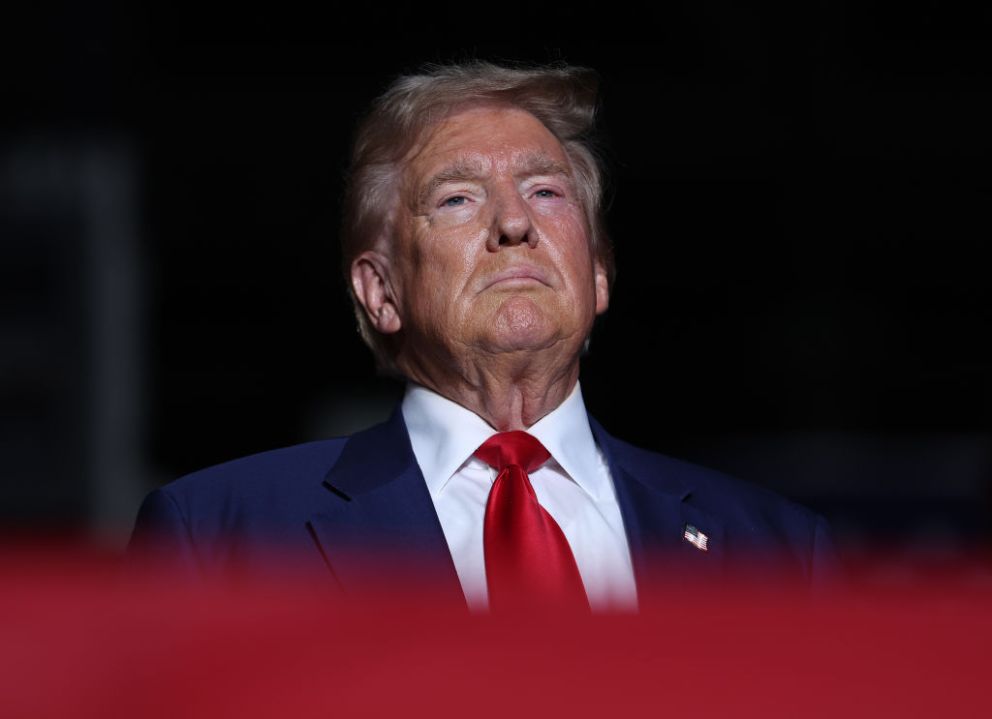China does not like tariffs, but big money in America likes them even less. If one thing has become clear amid the fog of the past week, it is that what will contain Donald Trump are the financial markets.
China’s foreign minister, Wang Yi, attacked Trump on Friday for his imposition of tariffs, adding that major powers ‘should not bully the weak’. While people in Taiwan might find that latter comment a bit rich, his line on tariffs squares with the reaction on Wall Street. The markets do not like it.
This week has seen the Nasdaq Composite index of high-technology companies move into a ‘correction’ – a 10 per cent fall from its peak. Only one of the Magnificent Seven high-tech giants, Meta Platforms (owner of Facebook), is up this year, and though Apple, the most valuable of the lot, has held up reasonably well, the shares of Tesla are now down by nearly a third. There are other forces at work, but the plain fact is that Elon Musk’s close association with Donald Trump has turned out to be a disaster for people who own the car company’s stock. This is not just about bumper stickers saying ‘I bought this before Elon went crazy’.
There seems to be a pattern. Donald Trump announces a set of tariffs. Share prices fall. He then partially backtracks. They recover a bit but do not return to their previous level. It is true that they started from a higher base as measured by price/earnings ratios, but the plain fact is that US shares have done worse this year than those of the rest of the world. The main US index, the S&P 500, is one of the few markets that is lower than it was at the beginning of January. On Friday, it was trading about 2 per cent down.
By contrast, share prices in the countries he is targeting have done rather better. The Mexico IPC index is up about 4 per cent, the Toronto S&P/TSX index was down, but only by 1 per cent, and in Europe, the DAX in Germany is up 15 per cent, the CAC 40 in France up 10 per cent, and the FTSE MIB in Italy up 14 per cent. The UK has not yet been threatened with tariffs, but just for the record, the FTSE 100 index is up 5 per cent.
And Chinese shares? Well, the Shanghai Composite is up more than 3 per cent year to date.
Markets are markets, and who knows – this underperformance in the US may straighten out. The ‘correction’ on Nasdaq may turn out to be just that, an inevitable reaction to the excessive exuberance of a bull market that had got a bit out of hand. But it is quite clear that Wall Street is unhappy about tariffs. It is uncomfortable, too, about job losses and inflation. And there are some signs that the whole economy is turning down.
The Federal Reserve Bank of Atlanta has an economic model, GDPNow, that estimates what is happening to the economy in real time. The latest number is that it contracted by 2.4 per cent this quarter. That is not a recession, even if it proves correct – you need two quarters of negative growth for that. But it runs counter to the mainstream estimates of growth running around 2 per cent and, of course, has to be a worry.
The big point is surely this. The financial markets initially welcomed Donald Trump as President. The S&P 500 hit its all-time high less than three weeks ago. But the mood has suddenly soured. We are too close to gauge which of the underlying causes of this disenchantment is most important. It may well be the tariffs, or it may be the wider chaos that he and his team are generating. It may be fears of rising inflation. It may simply be that disruption is never good for the economy, at least in the short term, and he is delivering disruption in spades.
We do know, though, that the markets are in a febrile mood. And if there is a bear market for equities round the corner, we know who will get the blame.








Comments